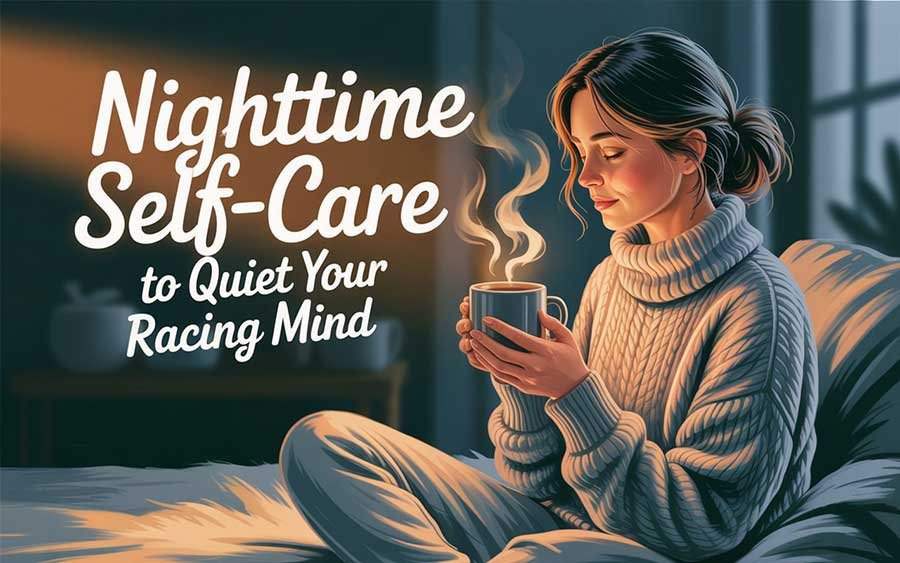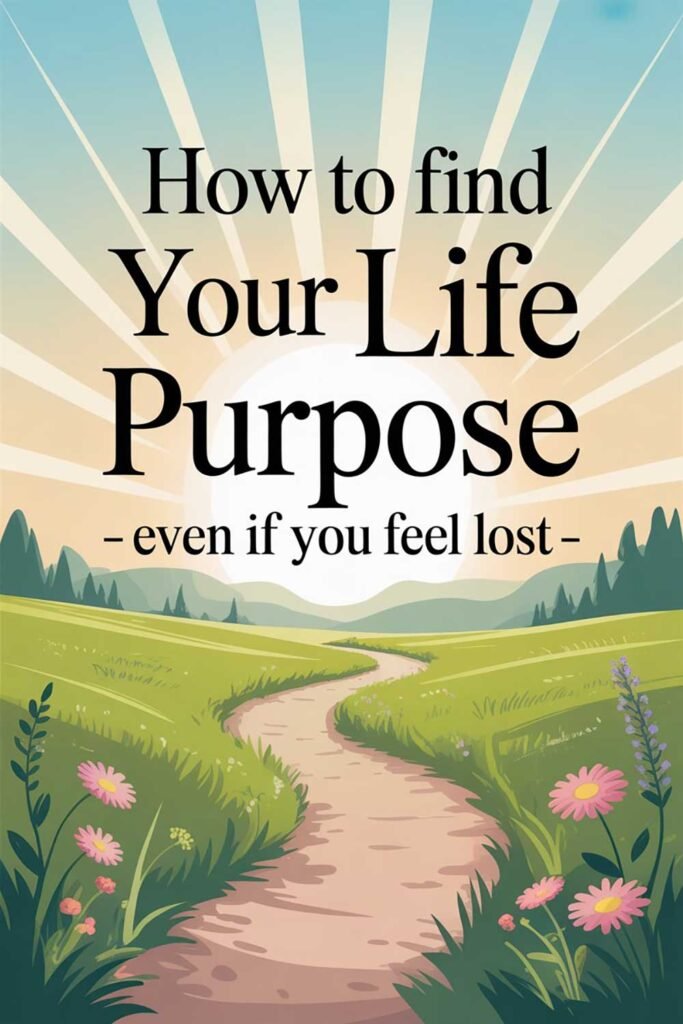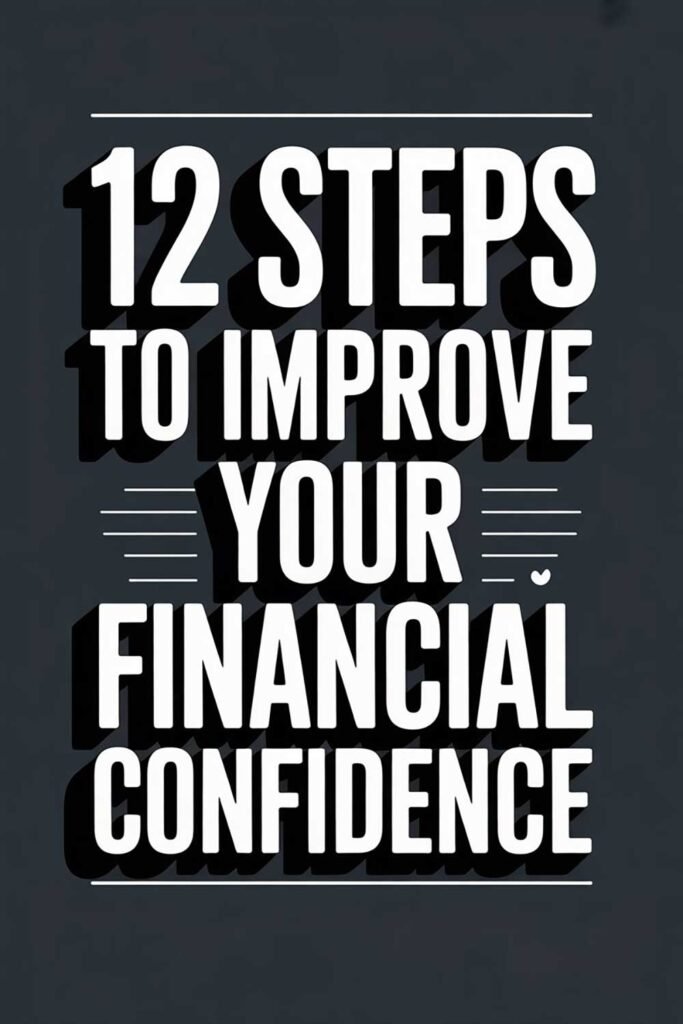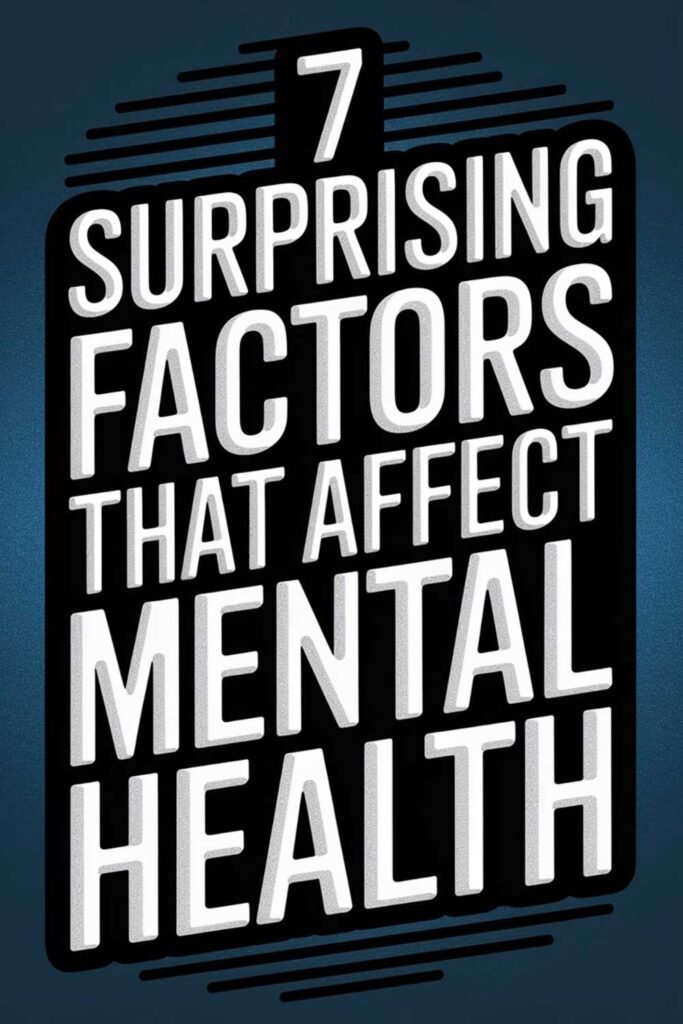
The Midnight Mind Marathon: Nighttime Self-Care to Quiet Your Racing Mind (And Unlock Restful Sleep)
Does this sound familiar? The day winds down, the house grows quiet, and you finally slide into bed, craving the sweet embrace of sleep. But the moment your head hits the pillow, your brain decides it’s time for an Olympic-level thought marathon. Your mind races through every worry, every unanswered email, every awkward conversation, every impending deadline. The to-do list for tomorrow, the regrets from today, and the anxieties about the future swirl in a relentless vortex, pushing sleep further and further away. For many of us, the hours leading up to bedtime, and the moments in bed, become a battleground against a hyperactive mind, leaving us exhausted, irritable, and constantly sleep-deprived.

I know this feeling intimately. For years, my nights were a frustrating testament to my racing mind. I’d fall into bed utterly drained from the day, only for my brain to switch into overdrive, replaying scenarios, planning contingencies, and summoning worries from every corner of my life. Sleep felt like an elusive prize I could never quite grasp. The exhaustion bled into my mornings, impacting my focus, my mood, and my overall well-being. I tried brute-forcing sleep, but the more I tried to make my mind be quiet, the louder it became. I desperately yearned for peaceful evenings and restorative sleep, but the “how” felt like an impossible riddle.
But here’s the profound truth I painstakingly discovered: a racing mind at night isn’t a permanent condition; it’s often a symptom of insufficient “off-ramps” throughout your day and a lack of intentional nighttime self-care.You don’t have to surrender your evenings to anxious thoughts or sleepless tossing and turning. The path to quiet evenings and restorative sleep lies in creating a conscious, compassionate, and strategic evening routine designed to gently guide your brain from “on” to “off.” It’s about building a series of self-care rituals that signal to your mind and body that it’s safe to relax, process, and ultimately, rest deeply.
This comprehensive guide is designed to be your ultimate blueprint for transforming your evenings from a mental battlefield into a peaceful sanctuary. We’ll expose why our minds race at night, unpack the damaging effects of poor sleep, and provide a powerful, step-by-step nighttime self-care routine tailored to quiet your racing mind and unlock the restorative sleep you deserve. Get ready to swap restless nights for profound peace, anxious thoughts for calm reflection, and wake up feeling truly refreshed and ready to embrace your day.
The Brain’s Night Shift: Why Our Minds Race (and the Cost of Poor Sleep)
Our brains are incredible problem-solving machines, but in the modern world, they’re constantly overstimulated. This relentless activity often spills over into our evenings:
- Information Overload: Throughout the day, our brains absorb massive amounts of data – emails, social media, news, conversations, tasks. If we don’t give our minds dedicated time to process and file this information, it often attempts to do so the moment we try to relax.
- Chronic Stress: High-pressure jobs, financial worries, relationship issues, and global events keep our nervous systems in a heightened state of alert. Our bodies are designed for short bursts of stress, not continuous activation. This constant “on” switch makes it difficult to calm down when it’s time for rest.
- Digital Stimulation: Blue light from screens (phones, tablets, computers, TVs) suppresses melatonin production, the hormone that regulates sleep. Engaging with stimulating content (news, social media, intense shows) right before bed keeps our brains highly aroused and actively engaged, making it impossible to switch off.
- Lack of “Off-Ramps”: We often jump directly from intense work or stimulating activities straight into bed, giving our brains no buffer time to decompress. It’s like going from 100 mph to a sudden stop; your engine is still revving.
- Unprocessed Emotions & Thoughts: If we don’t create space during the day to acknowledge and process our emotions, worries, or unresolved issues, they tend to resurface when our minds are finally quiet, demanding attention.
The Steep Cost of Poor Sleep: The consequences of a racing mind and insufficient sleep are severe and far-reaching:
- Fatigue & Low Energy: Obvious, but debilitating. Leads to reduced physical and mental stamina.
- Reduced Focus & Productivity: A tired brain struggles to concentrate, make decisions, and retain information.
- Irritability & Mood Swings: Sleep deprivation significantly impacts emotional regulation, making you more prone to anger, frustration, and anxiety.
- Impaired Judgment: Your ability to think clearly and solve problems is compromised.
- Weakened Immune System: Chronic sleep deprivation compromises your body’s ability to fight off illness.
- Increased Stress & Anxiety: It creates a vicious cycle: poor sleep exacerbates stress, and stress further disrupts sleep.
- Long-Term Health Risks: Chronic sleep deprivation is linked to serious health issues like heart disease, diabetes, obesity, and mental health disorders.
Prioritizing self-care is not selfish; it is a fundamental necessity for your well-being, especially when it comes to sleep. Understanding the science behind self-care and why it’s not selfish can provide crucial motivation to implement these evening practices, recognizing them as a vital investment in your health and happiness.
Your Evening Oasis: A Step-by-Step Nighttime Self-Care Routine for Calm
This blueprint is designed to gently guide your mind and body from the demands of the day to a state of profound relaxation, making peaceful sleep an inevitable outcome. It’s about proactive intervention, not reactive struggle.
Pillar 1: The Digital Sunset (Disconnect to Recharge)
This is arguably the most critical first step. Our devices are constant sources of stimulation, making it impossible for our minds to truly unwind.
1. Implement a Digital Curfew:
- The Hack: Establish a strict, non-negotiable “digital curfew” – typically 60-90 minutes before your target bedtime. All non-essential screens (phone, tablet, computer, TV) are turned off or put away.
- Why it Works: Blue light emitted by screens suppresses melatonin production, the hormone crucial for signaling sleep readiness. Engaging with stimulating content (news, social media, intense shows/games) keeps your brain highly aroused. A digital curfew allows your brain to naturally begin winding down, promoting melatonin release and reducing cognitive arousal. It physically removes the temptation for endless scrolling and mental engagement right before bed.
- Real-Life Example: Sarah, a remote worker, used to work on her laptop until 10 PM, then scroll on her phone in bed until midnight. She constantly battled insomnia. She implemented a 9 PM digital curfew. Her laptop went into its bag, and her phone charged in the living room. “The first few nights felt incredibly weird, almost like withdrawal,” she admitted. “But within a week, I noticed I was falling asleep faster, and my sleep was deeper. That forced disconnect was truly revolutionary for my nights.”
2. Create a Tech-Free Sleep Sanctuary:
- The Hack: Your bedroom should be reserved primarily for sleep and intimacy. Remove all unnecessary electronics, especially TVs and phones. Keep the room dark, cool (ideally 60-67°F or 15-19°C), and quiet.
- Why it Works: This signals to your brain that the bedroom is a place of rest, not stimulation or work. A dark room promotes melatonin production. A cool temperature is optimal for sleep onset and quality. Reducing noise minimizes disturbances.
- Real-Life Example: Mark, a college student, had his TV, gaming console, and phone all in his small bedroom. He moved the TV to the living room and charged his phone outside his room. He also invested in blackout curtains. “My bedroom used to feel like an entertainment hub,” he shared. “Now, it feels like a calm cave. The quality of my sleep dramatically improved because my brain wasn’t expecting entertainment the moment I lay down.”
Pillar 2: Mindful Release (Processing the Day, Gently)
Before your brain can rest, it often needs to gently process the day’s events and offload any lingering worries or to-dos. This phase is about creating space for mental clarity.
3. The Brain Dump (Get it Out of Your Head):
- The Hack: 60-90 minutes before bed (after your digital curfew), grab a dedicated notebook and pen. Write down everything that’s swirling in your mind: worries, anxieties, unanswered questions, unfinished tasks, ideas for tomorrow, anything that feels “incomplete.” Don’t filter, don’t judge, just transcribe.
- Why it Works: This simple act externalizes mental clutter and worries. By getting it out of your head and onto paper, it immediately reduces its overwhelming power. Your brain can then “let go,” knowing these thoughts are captured and don’t need to be actively remembered or worried about overnight. It frees up mental RAM for rest.
- Real-Life Example: Jessica, a small business owner, used to lie awake replaying conversations or planning the next day’s tasks. She started a pre-bed brain dump. “I write down every single thing that’s making me anxious, and every to-do for tomorrow,” she shared. “It’s like hitting a mental ‘save’ button. My brain knows it’s captured, so it doesn’t need to keep me awake trying to remember it all. I can then fall asleep so much faster.”
4. Practice Gratitude & Positive Reflection:
- The Hack: After your brain dump (or as part of it), spend 2-5 minutes actively identifying and acknowledging things you are genuinely grateful for from the day, no matter how small or seemingly insignificant. Also, reflect on any “wins” or positive moments, no matter how minor.
- Examples: “A warm cup of tea,” “A kind word from a colleague,” “Successfully completed X task,” “A beautiful sunset.”
- Why it Works: Gratitude actively rewires your brain to seek and register positive experiences and blessings, shifting your focus away from negativity, stress, or worries. This positive lens promotes feelings of contentment and calm, creating an optimal emotional state for sleep. It’s a core component of effective self-care practices. Explore various beneficial self-care practices to find what resonates most for you.
- Real-Life Example: Tom, prone to dwelling on things that went wrong in his day, started a brief evening gratitude practice. He’d list three specific things he was grateful for and one small win. “It consistently shifts my mood,” he noted. “Instead of ending the day on a negative note, I end it with appreciation. It makes my mind much quieter before sleep.”
Pillar 3: Soothe Your Senses (Engage the Parasympathetic System)
Once your mind is offloaded, intentionally engage your senses in calming ways to signal deep relaxation to your body.
5. Warm Bath or Shower:
- The Hack: Take a warm bath or shower about 60-90 minutes before bedtime.
- Why it Works: The warm water helps relax your muscles and can soothe your nervous system. The subsequent drop in body temperature after you get out (as your body tries to cool down) is a natural signal for sleep, aiding in sleep onset. Adding Epsom salts can further relax muscles.
- Real-Life Example: Andrew used to rush bedtime. He started taking a warm shower every night as part of his wind-down routine. “It washes away the day, both literally and figuratively,” he shared. “The warmth is so relaxing, and by the time I get into bed, I feel physically ready for sleep, not just mentally exhausted.”
6. Gentle Movement & Stretching:
- The Hack: Engage in 5-10 minutes of gentle, slow-paced movement or stretching. Avoid anything intense that raises your heart rate. Think mindful stretches, restorative yoga poses, or simply loosening tight muscles.
- Why it Works: Gentle movement helps release physical tension accumulated throughout the day. It promotes blood circulation and signals relaxation to your body without stimulating it, preparing your muscles for rest.
- Real-Life Example: Lisa often carried tension in her shoulders and neck. She started doing 5 minutes of gentle stretches (neck rolls, shoulder shrugs, cat-cow) before bed. “It released so much physical tightness,” she said. “When my body felt relaxed, my mind followed. It made falling asleep so much easier.”
7. Engage in Calming Activities (Analog Delights):
- The Hack: Replace screen time with activities that engage your mind gently without stimulating it.
- Read a physical book (fiction preferred over non-fiction or work-related content).
- Listen to soft, instrumental music or a calming podcast/audiobook.
- Engage in a quiet hobby like knitting, drawing, or coloring.
- Have a quiet, low-stress conversation with a loved one.
- Why it Works: These activities occupy your mind just enough to prevent it from racing, without stimulating it. They signal to your brain that it’s time to unwind, rather than engage in problem-solving or external consumption.
- Real-Life Example: Chrissy, an accountant whose mind was always in “numbers mode,” picked up knitting. She’d knit for 30 minutes after her digital curfew. “The repetitive motion of knitting is meditative for me,” she shared. “It completely distracts my mind from work worries without stimulating it. It’s my mental lullaby.”
Pillar 4: Nourish Your Body for Rest (Internal Calm)
What you consume before bed can significantly impact your mind’s ability to quiet down.
8. Herbal Tea or Warm Milk:
- The Hack: About 30-60 minutes before bed, sip on a calming herbal tea (chamomile, lavender, valerian root, passionflower) or a mug of warm milk.
- Why it Works: Many herbal teas have natural calming properties that help relax the nervous system. Warm milk contains tryptophan, an amino acid that can aid in sleep. The ritual itself is also inherently soothing.
- Real-Life Example: David used to struggle with restless nights. He started drinking chamomile tea as part of his routine. “It became my signal to my body that it was time to relax,” he noted. “The warmth and the subtle calming effect really help me feel ready for sleep, not just physically but mentally.”
9. Mindful Snacking (If Needed):
- The Hack: If you genuinely feel hungry before bed, opt for a light, easily digestible snack that won’t disrupt sleep. Focus on complex carbohydrates or a small amount of protein.
- Examples: A small bowl of oatmeal, a banana, a handful of almonds, whole-wheat toast with a little peanut butter.
- Why it Works: Going to bed hungry can keep your mind active. These snacks provide sustained energy without a sugar crash. Avoid heavy, fatty, or sugary meals close to bedtime, as well as caffeine and excessive alcohol, which disrupt sleep architecture.
- Real-Life Example: Emily used to wake up hungry sometimes. She started having a small bowl of oatmeal about an hour before bed. “It’s just enough to settle my stomach without feeling heavy,” she said. “And the warmth is comforting. It keeps my mind from focusing on hunger pangs, allowing me to fully relax.”
Pillar 5: Proactive Calm (Building a Sustainable Routine)
These overarching principles ensure your nighttime self-care becomes a lasting habit that protects your mental peace.
10. Prioritize Sleep & Self-Care (Non-Negotiable Investment):
- The Hack: Consciously elevate sleep and self-care to a top priority, not something you “fit in” if there’s time. Understand that adequate rest is foundational to your productivity, mood, and overall well-being.
- Why it Works: When you internalize that self-care is an investment in your best self (not a luxury), you are more likely to protect the time for it. This mindset shift is critical to integrating these practices consistently and truly benefiting from them. It helps you understand how to prioritize self-care without feeling selfish, as it’s a strategic move for holistic well-being.
- Real-Life Example: Andrew used to view sleep as wasted time. He constantly ran on 5-6 hours, leading to burnout. He reframed sleep as “essential performance fuel.” He now blocks 8 hours in his schedule and fiercely protects it. “When I started seeing sleep as a non-negotiable part of my success, not a sacrifice, everything changed,” he shared. “My mind is clearer, I’m less irritable, and I make better decisions. My whole life improved because I prioritized rest.”
11. Create a Self-Care Toolkit (Your Emergency Calm Kit):
- The Hack: Assemble a physical or mental “toolkit” of quick, accessible self-care items or activities you can grab when your mind starts racing.
- Examples: A favorite calming essential oil, a weighted blanket, a specific calming playlist, a stress ball, a journal for a quick brain dump, a list of gratitude prompts, a simple stretching routine written down.
- Why it Works: When your mind is racing, it’s hard to think clearly about what you need. A ready-made toolkit eliminates decision fatigue and provides immediate, proven ways to soothe yourself back to calm. This ensures you have instant resources available for immediate relief, strengthening your ability to manage moments of mental overwhelm. Building such a toolkit is a strategic way to empower yourself, as detailed in how to build a self-care toolkit that actually works.
- Real-Life Example: Lisa kept a small basket by her bed with a lavender essential oil roll-on, a specific journaling pen, and a list of her favorite calming meditation prompts. “If my mind started racing, instead of panicking, I’d just reach for the basket,” she said. “It’s like having a first aid kit for my mind. It helps me redirect my thoughts immediately.”
12. Build a Self-Care Routine That Sticks (Consistency is Key):
- The Hack: Don’t try to implement all these nighttime habits at once. Start small. Pick 1-2 rituals you can commit to consistently (e.g., a digital curfew and a 5-minute brain dump). Once those feel natural, gradually add more.
- Why it Works: Consistency is more important than perfection. Small, sustainable habits build momentum and rewire your brain over time. Trying to do too much at once often leads to burnout and abandonment. This gradual approach is crucial for establishing long-term routines that genuinely stick. Learn more about the steps involved in how to create a self-care routine that sticks.
- Real-Life Example: Chrissy initially felt overwhelmed by the idea of a full nighttime routine. She started with just two things: turning off her phone at 9 PM and doing a quick brain dump. After a month, she added 5 minutes of stretching. “Each small win built my confidence,” she shared. “Now, my routine is robust, but it was built one small, consistent step at a time, making it feel natural and effortless.”
13. Experiment with Self-Care Practices (Find What Works for You):
- The Hack: Not every self-care practice works for everyone. Experiment with different options until you discover what genuinely helps you calm your mind and prepare for sleep. Some people love journaling; others prefer listening to a podcast. Some need quiet; others need gentle sound.
- Why it Works: Personalization is key to a sustainable routine. Your individual needs and preferences will determine the most effective practices for you. By exploring various options, you build a diverse toolkit of soothing strategies. This open-minded approach helps you identify the self-care practices that truly resonate with your unique needs.
- Real-Life Example: David tried meditation but found it too hard to quiet his mind initially. He switched to listening to calming instrumental music while doing a puzzle before bed. “The puzzle engages my mind just enough so it doesn’t race, but it’s not stimulating,” he explained. “That, combined with the music, is my perfect way to unwind. It’s what works for me.”
Common Pitfalls to Avoid:
Even with the best intentions, building effective nighttime self-care can be derailed. Be mindful of these common traps:
- Ignoring Early Warning Signs: Pushing through initial restlessness or minor mental chatter. Addressing it early is easier than waiting for a full-blown mind marathon.
- Believing You “Don’t Have Time”: Investing 30-60 minutes before bed pays dividends in significantly better sleep, which enhances your productivity and energy for the entire next day. It’s an investment, not a time sink.
- Relying on Quick Fixes: Over-relying on alcohol or sleep medications. While they may offer temporary relief, they disrupt natural sleep cycles and do not address the root cause of a racing mind.
- Bringing Work/Stress to Bed: Your bed should be a sanctuary for sleep and intimacy, not a place for work, financial worries, or stressful conversations.
- Guilt About Resting: Internalizing beliefs that resting is lazy or unproductive. Remember, rest is a biological necessity and a strategic tool for sustained well-being and performance.
- Inconsistency: Skipping your routine when you’re most stressed or tired. That’s precisely when you need it most. Prioritize showing up for yourself.
Picture This…
Imagine the day winding down not with a sense of dread, but with a quiet anticipation for your evening ritual. You gracefully transition from your daily tasks, intentionally disengaging from screens and the demands of the world. Your mind, instead of racing, feels a gentle calm as you engage in soothing activities – perhaps a warm bath, a quiet read, or simply a thoughtful brain dump into your journal. You climb into a dark, cool, tech-free sanctuary, and your body and mind willingly embrace profound, restorative sleep. You wake up feeling genuinely refreshed, energized, and clear-headed, ready to embrace the day with purpose and resilience. This isn’t just about sleeping better; it’s about reclaiming your evenings, nurturing your mind, and cultivating an unshakeable inner peace that permeates every aspect of your life.
20 Powerful Quotes on Sleep, Calm, and Self-Care
- “Sleep is the best meditation.” – Dalai Lama XIV
- “Rest is not idleness, and to lie sometimes on the grass under trees on a summer’s day, listening to the murmur of the water, or watching the clouds float across the sky, is by no means a waste of time.” – John Lubbock
- “The quieter you become, the more you can hear.” – Ram Dass
- “A calm mind brings inner strength and self-confidence, so that’s very important for good health.” – Dalai Lama XIV
- “Your self-care is a necessity.” – Unknown
- “You are not your thoughts; you are the observer of your thoughts.” – Unknown
- “Worry does not empty tomorrow of its sorrow; it empties today of its strength.” – Corrie Ten Boom
- “It is okay to not be okay, but it is not okay to stay that way.” – Unknown
- “Self-care is not selfish. You cannot pour from an empty cup.” – Unknown
- “The greatest wealth is health.” – Virgil
- “Master your breath, let nothing disturb your inner peace.” – Swami Satchidananda
- “Burnout is not a badge of honor.” – Unknown
- “The mind is everything. What you think you become.” – Buddha
- “Give your mind a break. It deserves it.” – Unknown
- “The art of living lies less in eliminating our troubles than in growing with them.” – Bernard M. Baruch
- “Sometimes the most productive thing you can do is relax.” – Unknown
- “Inner peace begins the moment you choose not to allow another person or event to control your emotions.” – Pema Chödrön
- “You are allowed to be both a masterpiece and a work in progress simultaneously.” – Unknown
- “Take care of your body. It’s the only place you have to live.” – Jim Rohn
- “Sleep is the golden chain that ties health and our bodies together.” – Thomas Dekker
Disclaimer
Please note: This article is intended for general informational and personal development purposes only and is based on common self-care practices, sleep hygiene principles, and anecdotal experiences. While the strategies outlined can be highly effective in promoting relaxation and improving sleep, they are not a substitute for professional medical advice, diagnosis, or treatment for sleep disorders (e.g., insomnia, sleep apnea), anxiety, depression, or other mental health conditions. If you are struggling with persistent sleep difficulties, a racing mind, or significant emotional distress, please consult with a qualified healthcare professional or sleep specialist. Always adapt strategies to your unique needs and seek professional guidance when necessary.
Share This Article!
Are you ready to reclaim your nights from a racing mind and unlock the power of restorative sleep? If this comprehensive guide to nighttime self-care has inspired you, please share it with friends, family, or on your social media! Let’s empower more people to cultivate inner peace and wake up feeling truly refreshed.






